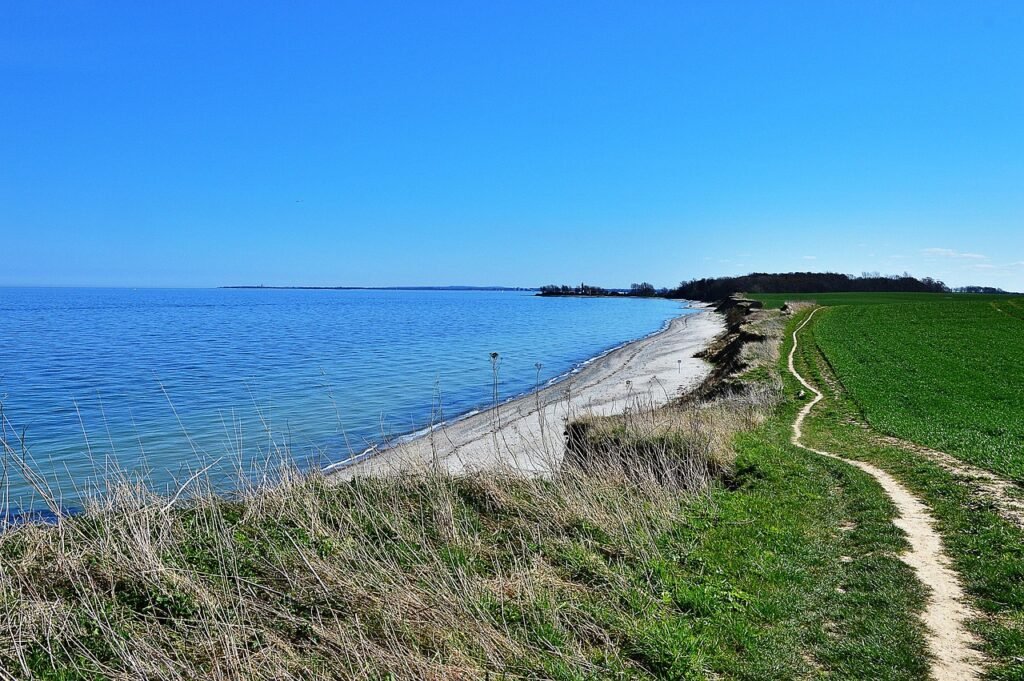Sun-kissed skin, the rhythmic crashing of waves, and the feeling of soft sand between your toes – beaches hold a timeless allure, drawing millions of visitors each year. But beyond the immediate sensory pleasures, beaches offer a multitude of benefits, from boosting our physical and mental well-being to providing crucial habitats for diverse ecosystems. This guide delves into the multifaceted world of beaches, exploring their appeal, the diverse activities they offer, their ecological significance, and how to responsibly enjoy these precious coastal environments.
The Enduring Appeal of Beaches
A Sensory Escape
Beaches are more than just stretches of sand; they are sensory havens that offer respite from the daily grind. The combination of visual stimuli (the vast ocean, vibrant sunsets), auditory delights (the crashing waves, seabird calls), and tactile sensations (sand, cool water) create a uniquely calming and restorative environment. Studies have shown that the color blue, prominently featured in ocean views, is associated with feelings of peace and tranquility.
Health and Well-being Benefits
- Vitamin D Boost: Sunshine is a primary source of Vitamin D, crucial for bone health, immune function, and mood regulation. Spending time on the beach allows for natural Vitamin D absorption (remember to use sunscreen!).
- Stress Reduction: The sound of waves has been linked to reduced stress levels. The rhythmic, predictable pattern is thought to promote relaxation and mindfulness. A 2019 study in Health & Place found that coastal environments were associated with lower levels of psychological distress.
- Physical Activity Opportunities: Beaches encourage physical activity, from swimming and surfing to beach volleyball and simply walking along the shoreline. These activities contribute to cardiovascular health, muscle strength, and overall fitness.
- Mindfulness and Meditation: The serene environment of a beach is conducive to mindfulness practices. Focusing on the sights, sounds, and sensations of the beach can help quiet the mind and promote a sense of presence.
Beaches as Social Hubs
Beaches serve as gathering places for families, friends, and communities. They provide a setting for shared experiences, creating lasting memories and strengthening social bonds. Think of the family beach vacation, the bonfire with friends, or the community beach cleanup – all activities that foster connection and belonging.
Beach Activities for Everyone
Water Sports and Recreation
- Swimming: A classic beach activity, swimming offers a full-body workout and a refreshing escape from the heat. Always check local water conditions and swim in designated areas.
- Surfing: Riding the waves is an exhilarating experience that requires skill, balance, and a connection with the ocean. Many beaches offer surfing lessons for beginners.
- Paddleboarding and Kayaking: Explore the coastline at your own pace with paddleboarding or kayaking. These activities provide a great workout and offer unique perspectives on the marine environment.
- Snorkeling and Scuba Diving: Discover the underwater world with snorkeling or scuba diving. Explore coral reefs, observe marine life, and marvel at the beauty beneath the surface. Popular snorkeling spots include the Great Barrier Reef in Australia and the Maldives.
Land-Based Activities
- Beach Volleyball: A fun and social activity that promotes teamwork and physical fitness. Many beaches have volleyball courts available for public use.
- Sunbathing: Relax and soak up the sun (responsibly!) while enjoying the beach ambiance.
- Building Sandcastles: A creative and engaging activity for all ages. Constructing elaborate sandcastles can be a fun family project.
- Beachcombing: Search for shells, sea glass, and other treasures washed ashore by the tide.
Relaxation and Leisure
Sometimes, the best beach activity is simply relaxing and enjoying the scenery. Bring a book, listen to music, or simply watch the waves roll in. The peaceful environment of the beach is perfect for unwinding and de-stressing.
The Ecological Importance of Beaches
Coastal Ecosystems
Beaches are vital components of coastal ecosystems, providing habitats for a wide variety of plants and animals. These ecosystems play a crucial role in protecting coastlines from erosion, filtering pollutants, and supporting biodiversity.
- Sand Dunes: Sand dunes are natural barriers that protect inland areas from storm surges and erosion. They are also home to specialized plants and animals adapted to harsh coastal conditions.
- Tidal Pools: Tidal pools are small bodies of water that form on rocky shores during low tide. These pools are teeming with marine life, providing a glimpse into the diversity of the ocean.
- Seabirds: Beaches are important feeding and nesting grounds for many species of seabirds. These birds play a crucial role in the marine food web.
Threats to Beach Ecosystems
- Pollution: Plastic pollution, oil spills, and other forms of pollution can have devastating effects on beach ecosystems, harming marine life and degrading water quality.
According to the Ocean Conservancy, approximately 8 million metric tons of plastic enter the ocean each year.
- Coastal Development: Construction of buildings, roads, and other infrastructure can disrupt natural beach processes, leading to erosion and habitat loss.
- Climate Change: Rising sea levels, increased storm intensity, and ocean acidification are all threats to beach ecosystems.
The Intergovernmental Panel on Climate Change (IPCC) projects that sea levels could rise by up to 1 meter by 2100, threatening many coastal communities and ecosystems.
Conservation Efforts
- Beach Cleanups: Participating in beach cleanups is a simple but effective way to remove litter and protect marine life.
- Sustainable Tourism: Supporting businesses that prioritize environmental sustainability can help reduce the impact of tourism on beach ecosystems.
- Coastal Management Policies: Advocating for policies that protect coastal areas from development and pollution is crucial for long-term conservation.
- Supporting Organizations: Donate time and money to organizations dedicated to protecting beaches. Examples include the Surfrider Foundation and the Ocean Conservancy.
Responsible Beach Etiquette
Leave No Trace
The most important principle of responsible beachgoing is to leave no trace of your visit. Pack out everything you pack in, dispose of trash properly, and avoid disturbing wildlife.
- Proper Waste Disposal: Use designated trash and recycling bins. If bins are full, take your trash with you.
- Minimize Single-Use Plastics: Bring reusable water bottles, shopping bags, and food containers to reduce plastic waste.
- Respect Wildlife: Observe wildlife from a distance and avoid feeding them. Feeding wildlife can disrupt their natural behavior and make them dependent on humans.
Respecting Other Beachgoers
Be mindful of other people enjoying the beach. Avoid playing loud music, throwing sand, or engaging in activities that could disturb others.
- Noise Levels: Keep music and conversations at a reasonable volume.
- Personal Space: Respect other people’s personal space and avoid crowding them.
- Pet Control: Keep pets on a leash and clean up after them. Check local regulations regarding pets on the beach.
Protecting the Environment
Take steps to minimize your impact on the beach environment. Avoid trampling vegetation, disturbing sand dunes, and collecting shells or other natural objects.
- Stay on Designated Paths: Use designated paths to avoid trampling vegetation and disturbing wildlife habitats.
- Avoid Collecting Shells and Sand: Leave natural objects in place for others to enjoy. Removing shells and sand can disrupt the ecosystem.
- Use Reef-Safe Sunscreen: Choose sunscreen that is free of harmful chemicals like oxybenzone and octinoxate, which can damage coral reefs.
Conclusion
Beaches are invaluable resources that offer a multitude of benefits, from promoting our well-being to supporting diverse ecosystems. By understanding the importance of beaches and practicing responsible behavior, we can ensure that these coastal environments continue to thrive for generations to come. Whether you’re seeking relaxation, adventure, or a connection with nature, the beach offers something for everyone. So, pack your sunscreen, grab your towel, and head to the shore to experience the magic of the beach firsthand. Remember to leave only footprints and take only memories!

